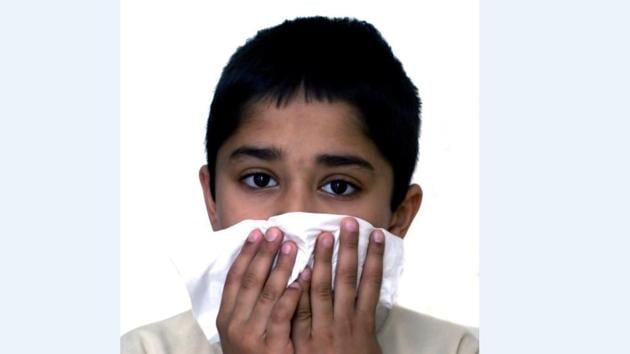Chandigarh hospitals witness spike in cases of breathing problems
Doctors at the OPD of department of pulmonary medicine, PGIMER, Chandigarh, report an average of 207 cases per day in April, while the number was 167 and 187 in February and March, respectively.
With the tricity witnessing dust storms over the past week, Chandigarh hospitals are reporting a spike in the number of breathing problems.

Doctors at the out-patient department (OPD) of department of pulmonary medicine, Post-Graduate Institute of Medical Education and Research (PGIMER), Chandigarh, report an average of 207 cases per day in April, while the number was 167 and 187 in February and March, respectively.
Precautions
Avoid going outdoors
If you are allergic to dust mite, start taking your medicines before the harvest season begins
Eat healthy and include fruits and vegetables in your diet
Avoid having heavy carpets or other such tapestry in rooms if you are dust mite allergic
Likewise, at Government Medical College and Hospital (GMCH), Sector 32, in the pulmonary medicine OPD, the average number of cases in a day comes out to be 166 per day while the number was 144 and 153 in February and March, respectively.
“Wearing masks won’t help. The size of the pollen seeds is too small to get filtered,” said Dr VK Jindal, former head of the department of pulmonary medicine, PGIMER.
He explained how this month coincides with Baisakhi which is known for its high pollen content. Coupled with dust storms and increasing pollution by smoke and other pollutants can lead to breathing difficulties. He also mentioned how microscopic mites which are present in the dust irritate the respiratory system.
Jindal also talked about the modern air filtering systems that many companies market as not being effective for pollen.
Dr Ashutosh Nath Aggarwal, head of the department at PGIMER, said, “If patients take their medicines properly and on time, April shouldn’t be any different for them.”
Dr Kranti Garg, assistant professor at department of pulmonary medicine at GMCH 32, said, “Pollen isn’t the biggest problem in Chandigarh. In fact, Punjab and Haryana have more exposure to harvesting related pollen. Chandigarh is more prone to effects of pollution.”
Talking about the treatment, she said symptoms can’t be cured but controlled. Inhalers are effective for controlling the symptoms. For people who have to use these on a daily basis, the cost can come up to Rs500 per month.





